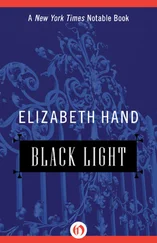She was still a young woman, though Sweeney Cassidy wouldn’t have thought so. She had dark thoughtful eyes, a wry mouth, determined chin. Her brown hair was cut in a pageboy and was streaked with grey. She wore unfashionable clothes, baggy trousers of black linen and a Betsey Johnson blouse that had been le plus ultra when Magda herself was an undergraduate, but now was faded and somewhat shabby. More striking was Magda’s necklace: a crescent-shaped collar of beaten silver. At its widest point it was engraved with a triskele composed of three interlocking moons. The workmanship was exquisite, in the Celtic style favored by metalworkers in Bronze Age Europe. The lunar curves joined to form an abstract pattern of still more crescent moons, smaller or larger depending on how they caught the light. There was a gap in the collar, a hole where another, smaller, curve should fit. But ancient treasuries and burial sites are often raided or despoiled, by grave robbers and disinherited relatives and greedy priests.
The necklace was a lunula, sacred to the lunar goddess Othiym. Magda knew of only a handful like it which had ever been found—one, a mere fragment, had been discovered by her mentor and was now among the holdings of the National Museum. It was an object of great power, especially in the hands of a Benandanti like herself. Had it been whole, and not missing that curved spar from its center, it would have been unimaginably so.
Magda knew where that missing fragment was, but she had long ago decided not to retrieve it. Her West Coast mentor, the great June Harrington, had found a fragment of a lunula during one of her own early excavations, and (to her later regret) donated it to the National Museum of Natural History. She told Magda of glimpsing it there many years later in the museum archives, a sliver of light in a dusty glass case.
“I often think of it,” June had sighed, her gnarled hands opening and closing in her lap. “I could have just taken it back, you know. I could have just taken it, they never would have known.
“But I never did. And I never saw it again.”
Magda did not show her lunula to June Harrington. She did not show it to Balthazar Warnick, who had sponsored her within the Benandanti, or indeed to anyone at all. Had the Benandanti known she possessed it, they would almost certainly have tried to wrest it from her. But until now it had remained safely in Magda’s possession. The lunula—and its Mistress—protected its own.
“In hoc signo spes mea.”
Magda recited the words softly, her fingers brushing the edge of the silver collar upon her breast.
“Othiym, Anat, Innana, Kybele, Kali, Artemis, Athena, Hecate, Potnia, Othiym. In hoc signo vinces.” In this sign is my hope, in this sign thou shalt conquer. “In hoc signo spes mea: Othiym. Haïyo Othiym Lunarsa.”
Some years ago, Magda had been one of the first female students admitted to the Divine. She was still one of the few female Benandanti. Her career since then had been quietly triumphant. Early tenure at UC Berkeley, several major archaeological discoveries, a few token appearances on morning talk shows. She had written a work now commonly regarded as a classic text, the two-volume Daughters of the Setting Sun: The Attic Mystery Tradition in Anatolia, which her mentor, the eminent classicist June Harrington, had called “absolutely indispensable.” This past summer, Professor Kurtz’s lectures at the Divine had been crowded with undergraduates and doctoral students alike, and she had briefly considered staying on a little longer, to see the fall term begin. To see for herself the new crop of students and decide if there were any worth claiming.
But then she had learned of the Sign—learned just that morning, which left her precious little time for what she had to do. Because, while Magda had a long past history within the Benandanti and the Divine, her present loyalties lay elsewhere.
She knelt on the rough wool of the Pasquar rug. A round copper dish stood in front of her, and a tiny cloisonné casket filled with gold-tipped matches. Next to the casket gleamed a small silver bowl filled with water. Very carefully, Magda smoothed out a lock of her hair and plucked a single strand. She examined it, then placed it upon the surface of the silver bowl. She sat back, lips tight and eyes closed. After a moment she leaned forward.
In the copper dish was an object wrapped in newsprint. She began to unwrap it, until an untidy heap of old newspaper fluttered at her side and she held something slightly smaller than her own hand, swaddled in cloth. Magda grimaced as she unraveled the strands of rotting linen. Another smell overwhelmed the scent of burned hair: a smell of rot, but also of spices, acrid pepper and salt and the sweetish citric tang of vervain. She pushed aside the discarded wrappings, careful to keep the newspapers from coming too close to the candles in their heavy brass holders. Then she laid her prize upon the copper plate.
It was a hand. Perhaps three-quarters the size of her own, mummified and faintly green with mold, its flesh puckered and pocked with flecks of orange-and-white fungus. It had been dipped in wax, but much of that had cracked or turned to an oily scum upon the dried flesh. It sat upon the plate, fingers upcurled like the frozen appendages of a dead tarantula, fingernails furred with mold. Magda wiped her hands on a small towel and stared at it with distaste.
“Well.” She reached behind her for an unlit candle. Taking one of the gold-tipped matches, she lit it, then very slowly touched it to each of the fingers on the dead hand. A spurt of bluish flame. Black smoke thick as rope uncoiled from the fingertips and settled onto the floor. The room filled with the putrid smell of spoiled meat. Magda held her breath. After a moment the fingers began to glow with a faint yellow flame.
“Yes,” she murmured. She turned away, coughing delicately, and blew out me candle. The Hand of Glory burned with a steady, poisonous gleam, flames licking at its fingertips. Where the smoke touched the rug it left a heavy dark smear, like rancid fat.
She turned to the silver dish, where the single strand of hair floated, and spoke beneath her breath. The hair started to move. Magda Kurtz continued to murmur in the same quick, almost thoughtless manner; but her eyes were slitted with concentration.
Upon the surface of the water, patterns began to appear. Faint lines, dull red and black against the silvery surface. After a minute or so an image emerged. Blots of light and shadow that soon took on the contours of a face: a young man’s face. Magda fell silent. For a long time she stared at the image, her mouth tight. Then she breathed upon the water. The face disappeared into cloudy ripples. From the Hand of Glory came a spattering sound as a drop congealed upon the tip of one finger and burned in a small greasy cloud. Magda glanced aside, finally began speaking again.
Her words sounded no different this time, but the hair moved more slowly in response to her voice. It grew thicker, until it might have been a nematode squirming there, or some bloated larva. The water roiled and churned, and suddenly was still.
Within seconds the second image appeared: the face of a young woman with huge slanted eyes, their color unguessable, but an unmistakably beautiful girl. Magda gazed at the image thoughtfully. Finally she nodded and whispered.
“I thought as much.”
She held her hand above the bowl, touched the water with a finger. The hair writhed like a worm upon a hook, with a soft hiss disappeared into a thread of white smoke.
“So,” said Magda.
So this was what the Sign portended. She almost laughed, thinking of her old friend and mentor Balthazar Warnick. “All for naught…”
Читать дальше












